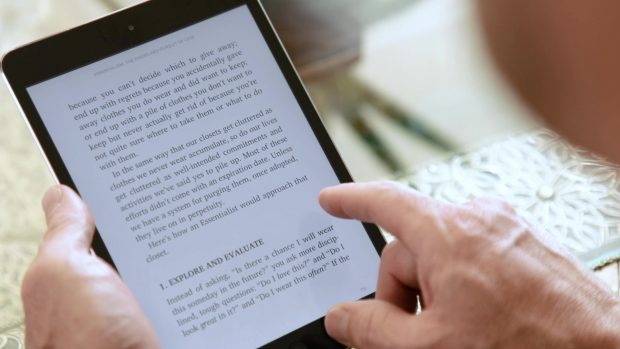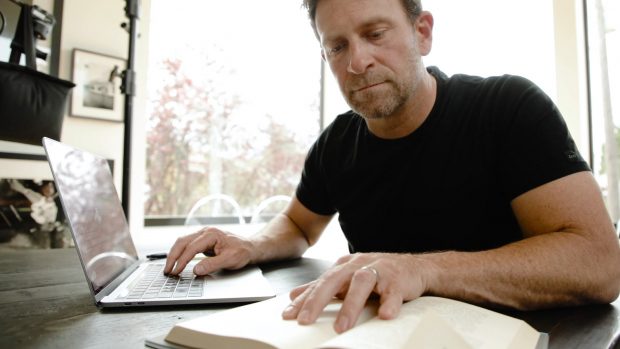Books are a phenomenal way of decoding the lives and minds of the greatest people that ever lived. You might’ve heard the quote ‘all leaders are readers’ before that’s because great leaders KNOW the irreplaceable importance of books. Packaging years, or sometimes even decades of knowledge into the pages of a book for someone else to read and benefit from takes a mountain of effort and ambition. Anyone who’s known this knows that the value you receive from them is unbeatable.
I read about 30-50 books a year. I reckon it doesn’t even take two hours of your time every day to achieve that. Even an hour is the max for me. Yet, how do I find time for reading? And in this era of the digital revolution, where information is readily available through other forms of creative media: digital vs paper, readable vs audible and throw in the mix videos and podcasts, why do books continue to rank above podcasts in terms of the value they provide?
How Technology Helps You Commit To Your Reading Habits

We know quite well about the game-changing influence of books in our life. But how do you cultivate the habit of reading in your already busy life?
By leveraging available technology.
Despite the idea of touching, feeling, and flipping through the pages of a physical book being very compelling, carrying physical books everywhere, all the time, is challenging, especially for a travel enthusiast. Kindle and audio books competitively solve the problem in their own ways. For one, both free up space in your travel bag. Secondly, audiobooks allow you to consume a book 50 or more times faster by adjusting the speed of dictation. Using existing technology can help you better stick to your reading habits by allowing you to consume books in a way that works for your current situation.
Books Over Podcasts
A lot of the things I have learned, the skills I have acquired, and my exposure to new ideas and techniques have come from podcasts. They can literally tell you anything and provide a lot of different dimensions and perspectives that can be very valuable in the hyper-connected and fast-paced world we live in today.
But even as a producer of a podcast for more than a dozen years now, I can tell you that although the level of effort that goes into a podcast is massive, it pales in comparison to what is required for a book. An hour-long podcast would make maybe just a chapter of a book.
Books are packed with information and insights that allow you an amazing capacity to connect, empathize, and imbibe value from others. They cultivate your imagination and connect you to art and humanity.
How Technology Helps You Read In A Way That Suits You
Choosing the medium of consuming books is not always a matter of comfort. For instance, if you have dyslexia, reading on a computer screen might be the worst for you. Audiobooks are fantastic in that sense, as they allow you to get the benefits of reading without having to put yourself through the torture of trying to make sense of the words on a page.
Tips To Read More Books In A Year
Wonder how I read 30-50 books a year, spending less than 2 hours reading daily? It’s all a matter of understanding what you need and what works for you. Two things:
- I rarely sit down and read a book from cover to cover. If I lose interest, I won’t continue to read it. There’s no point in reading books you get zero value from. The motto is simple: Read books you love, drop the ones you don’t.
- Read what you want to learn. I don’t always read a book from start to finish. Sometimes, I read two or four chapters of a book that are very important to me. If you read the intro and the end and are still able to make enough notes out of it, even if you don’t read the whole book, you still get so much value.
Tips To Retain The Information You Gain From Books

If you’re a Kindle reader, you probably already know about the highlight feature you can use to mark essential portions of a book. It allows you to scroll back to those parts again as many times as you’d like.
Here are two other ways of retaining information:
- Taking actual notes. As the host of a podcast with guests, including the world’s leading creatives and entrepreneurs, I practice jotting down essential points from the guest’s book and making them into a separate set of notes. They come in handy, especially during my conversations with them.
- Leveraging available note-taking apps like Evernote. Evernote does not only allow you to type in notes on the go but gives you the ability to quickly search any previous notes you’ve made about a topic and fit them all on one page. Compiling and accessing information and ideas becomes easy this way.
Before we close in for today, here’s a list of books that I swear would make you more creative. My book, Creative Calling, came out a lot later, so the list doesn’t include it. But don’t forget to check it out. It teaches you to overcome any challenges around tapping into your creativity and live a creative life.
Join the Creative Calling Book Club classes to hear me break down insights from my book Creative Calling in just six weeks.















